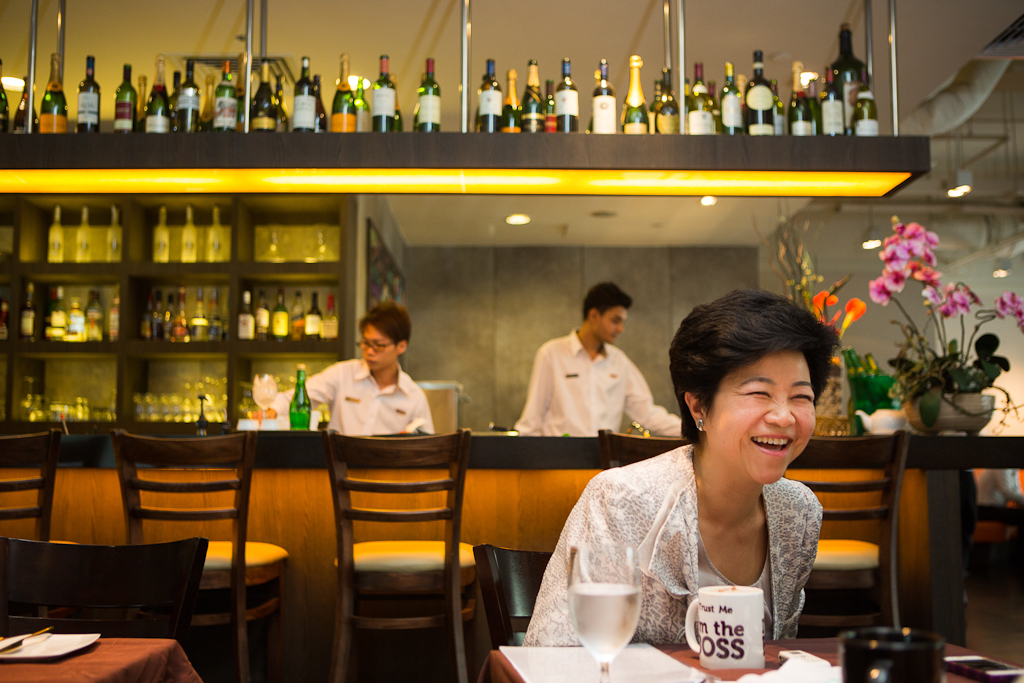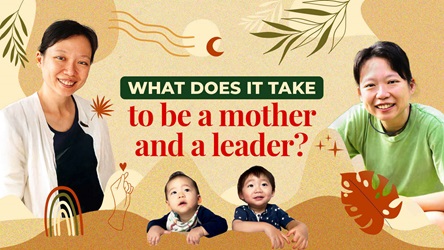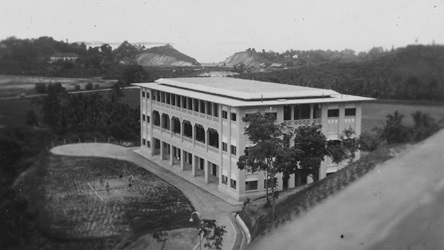"Our HR Policies Need To Be Flexible…"

The government’s new Human Resource chief has admitted that its policies are a tad old-fashioned – and need to change. Currently, policies are based on the somewhat outdated idea that officers will stick with a civil service career for life.
But what happens if a public officer wants to work four days a week, and spend the rest of his time running a performing arts group? What if he wants to take three months’ leave to help the needy in Cambodia? These are questions Ms Yong has asked herself. “We haven’t crossed that bridge yet,” says the newly minted Permanent Secretary of the Public Service Division (PSD). “At the moment our reaction would be, ‘Oh, gosh. We need to think about what the answer should be.’ ”
But she does add, encouragingly: “Our HR policies need to be sufficiently flexible to recognise these needs, in order to retain these people.” An example of a possible solution would be to hire on a part-time basis.
At the same time, there needs to be “greater liberalisation” in pay and benefits. “As the government becomes more complex… setting [the same] standards across the whole government probably creates unnecessary rigidity,” she explains. Hence PSD is exploring ways to give agencies greater room in tweaking policies, so they can “do what they need” to recruit, retain and motivate staff.
Ms Yong left her Permanent Secretary portfolio at the Ministry of Health in April. Now she oversees HR practices that concern the careers of 130,000 public officers working in 15 ministries and 63 statutory boards.
At the interview at Recipes, a restaurant at The Treasury, Ms Yong is wearing her trademark bouffant and dimples. She reveals that the last six months have been about “re-visiting assumptions”.


Career development
From her experience, Ms Yong observes that the number one concern of public officers is invariably career development.
She says: “Whether you are able to retain officers is not just about whether they enjoy their current job or like their colleagues, or if they are doing meaningful work. It is also about articulating sufficiently attractive propositions in career development. Officers want more experiences, whether it is in training, job exposure or different job postings.”
When asked if she herself had ever entertained the thought of seeking out a different destiny, outside of the Public Service, she pauses, before replying: “I’ve done internships and summer jobs in private companies, both here and overseas. But I haven’t seriously thought of leaving the Public Service. I’ve changed jobs so many times within the public sector I don’t think I ever had a chance to get bored.”
It’s not difficult to see why. In a brief summary, Ms Yong has tackled policy work at the Ministry of Trade & Industry, worked the ground at the Ministry of Home Affairs, and then ascended the leadership rung when she became CEO of the Infocomm Development Authority. She next worked with trade unions when she was at the Ministry of Manpower, before venturing into healthcare policy at the Ministry of Health.
“I’m a Jill of all trades,” she merrily declares, her dimples dancing. “I think one of the lessons as a generalist leader is that it is important to know what you don’t know. I’m not a Superwoman; I don’t pretend to be an expert in anything. When you recognise you’re not an expert, it’s about building a team where the team is stronger than the individual.”
Guarding private time
Ms Yong also had something to say about work-life balance, which she feels that leaders should respect.
If she sends her staff an email late at night, for instance, she makes sure she tells them that she doesn’t expect an instant reply. “If you don’t say it, unless there is a crisis, people second-guess.”
It is a considerate gesture, something she learnt from Prime Minister Lee Hsien Loong during her appointment as his Principal Private Secretary. “He was sending emails late at night, and he was sweet enough to tell his staff at the Monetary Authority of Singapore, ‘I have a different body clock, I work late at night and I come into work late. Please don’t feel obligated if you receive this email late at night that you must reply [right away].’”

For herself, too, Ms Yong, who is single and lives with her parents, makes sure she has her own private time. “I try to block Wednesday lunch and once in the weekend,” she says, referring to her twice-a-week Pilates routine which evolved from her training in ballet (“I know you don’t believe it. I do mean ballet.”).
“My staff keep trying to steal the lunchtime slot to do other things, but that’s normal,” she concludes. “We all have to make choices about what we have to spend time on, and not let the (work) diary take control.”
What’s usually in your cuppa?
Cappucino with no sugar. (Sugar is not healthy, that’s what I learnt from my previous job. I’m trying to ban the 3-in-1 drinks at PSD.)
Where do you usually have your cuppa?
I have a Nespresso machine in my office. I try not to drink more than 2 cups a day.
- POSTED ON
Nov 16, 2011
- TEXT BY
Wong Sher Maine
- PHOTOS BY
Norman Ng
-
Feature
Why DBS Wants To Be Gandalf
-
Out of Office
Gillman Barracks: From Colonial To Contemporary Fun










